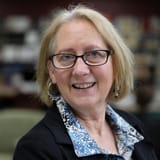California board hits pause on plan to phase out gas appliances
A coalition that includes SoCalGas had launched a fierce campaign against a proposed transition from gas-fired furnaces and water heaters
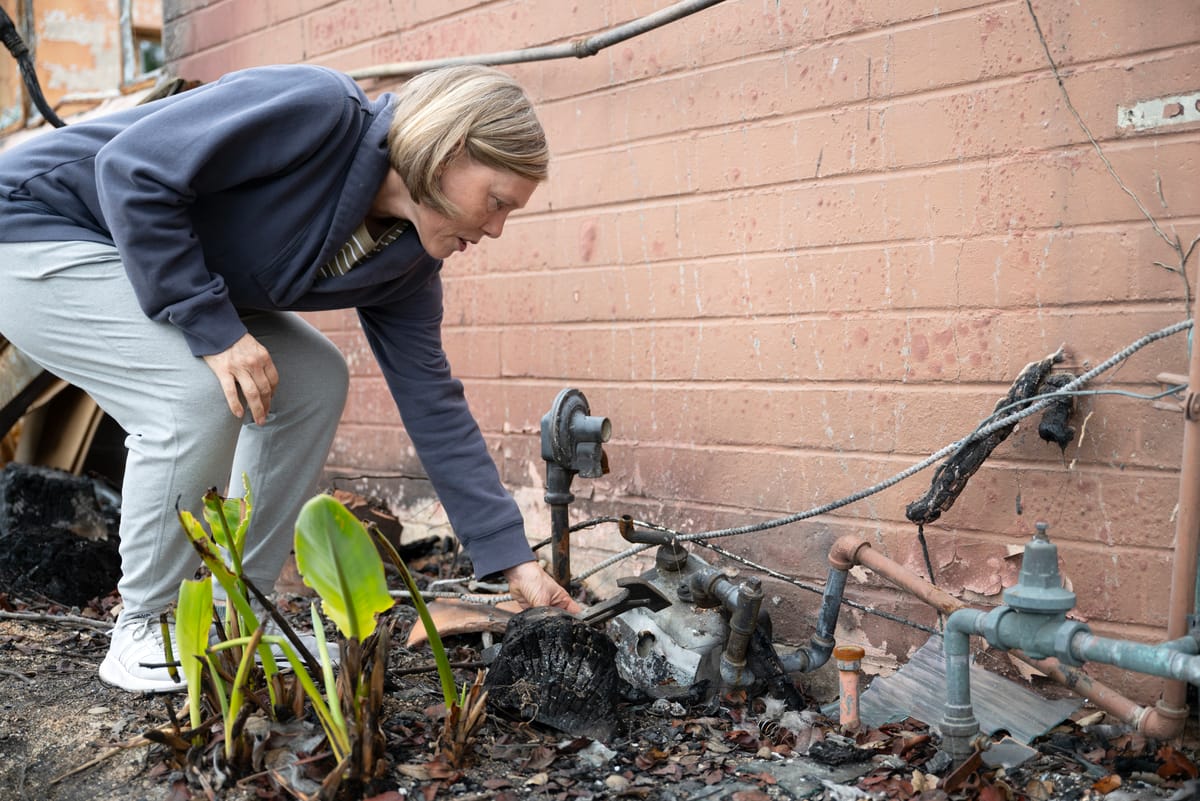
Read the Los Angeles Times story here.
A board that regulates air quality in the Los Angeles area voted Friday to consider more alternatives to its plan to levy a fee aimed at phasing out gas-fired water heaters and furnaces.
That proposal was defeated on a 7-5 vote. But board members agreed 7-4 to consider less-stringent options, citing concerns over the cost to property owners and manufacturers and the ability of the electric grid to withstand more demand.
South Coast Air Quality Management District Board Chair Vanessa Delgado said that means any rule changes aimed at lowering nitrous oxide (NOx) emissions likely would not come before the board until at least next year.
The proposed rules would have encouraged homeowners to buy furnaces and water heaters that emit no NOx — a key pollutant contributing to smog — by placing a fee on manufacturers that sell natural-gas-fired appliances in the district. More than 200 speakers testified in person and online for and against the plan.
The governing board’s vote followed a warning Friday from Bill Essayli, the U.S. Attorney in Los Angeles, that any action to impede the use of domestic energy resources would face a legal challenge by his office.
“California regulators are on notice: if you pass illegal bans or penalties on gas appliances, we’ll see you in court,” Essayli said on X. “The law is clear — feds set energy policy, not unelected climate bureaucrats.”
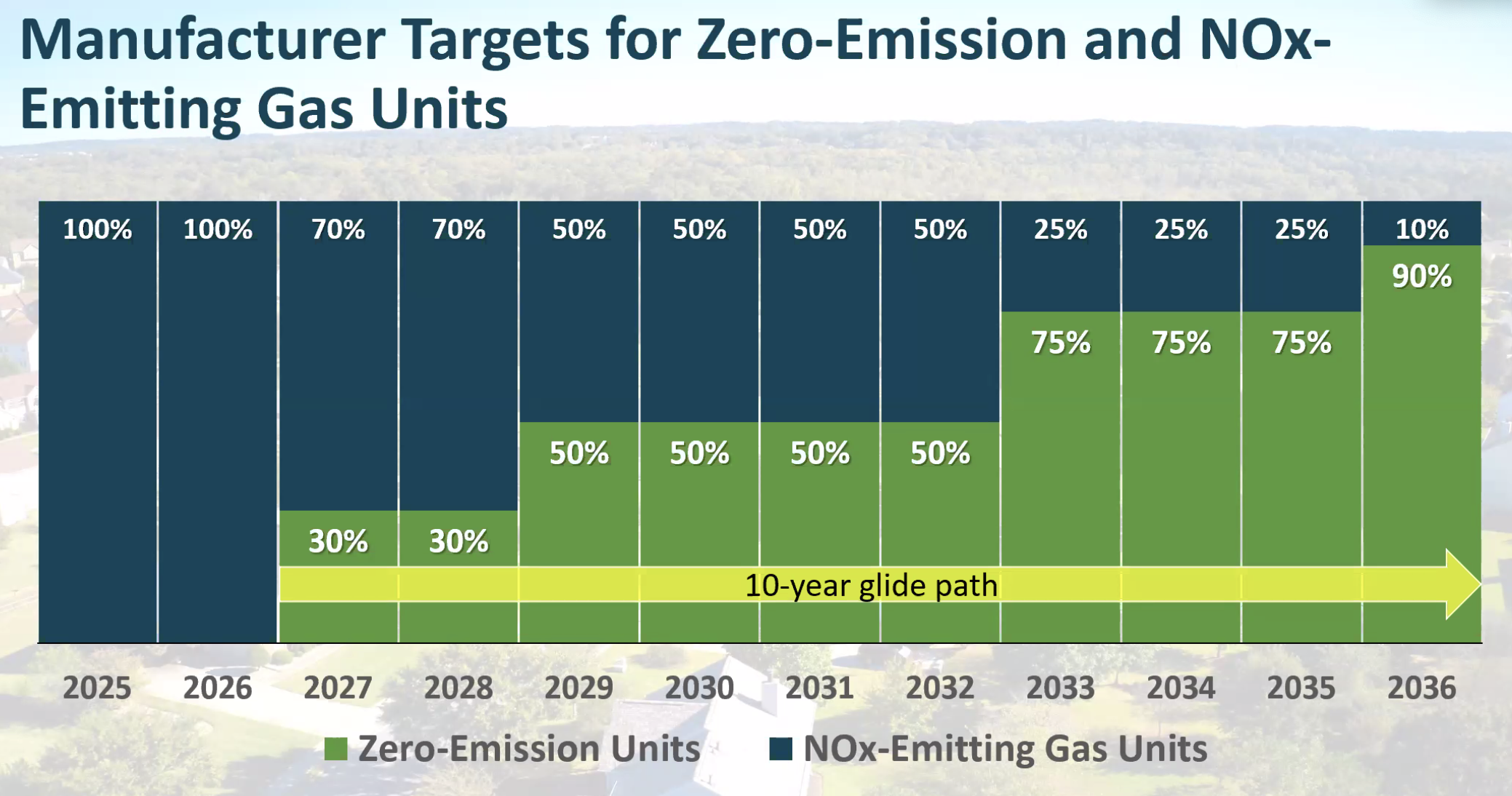
Board members split on rules
Opponents of the rule changes told the board that housing was already too expensive and the cost of living too high for area residents. Floodlight found that a coalition of groups that included SoCalGas, the country’s largest gas utility, led a massive opposition campaign that included convincing officials from dozens of cities in the four-county district to oppose the rules.
Those testifying in favor cited the positive health effects of the rules, which were projected to prevent 2,490 premature deaths and avoid 10,200 asthma cases by cutting NOx emissions by six tons per day. Some noted that natural gas — also known as methane — is a potent greenhouse gas that helped make the devastating wildfires that ripped through the Los Angeles area in January more likely.
In voting against the proposed rules, board member Janet Nguyen said they would unnecessarily penalize people by raising the cost of household appliances.
“I, like everybody here, support clean air,” said Nguyen, who also serves as an Orange County supervisor. “But we must also pursue environmental progress without punishing the very people we serve today. These rules don’t target refineries or shipping ports. They target people, the 17 million homeowners, renters ...”
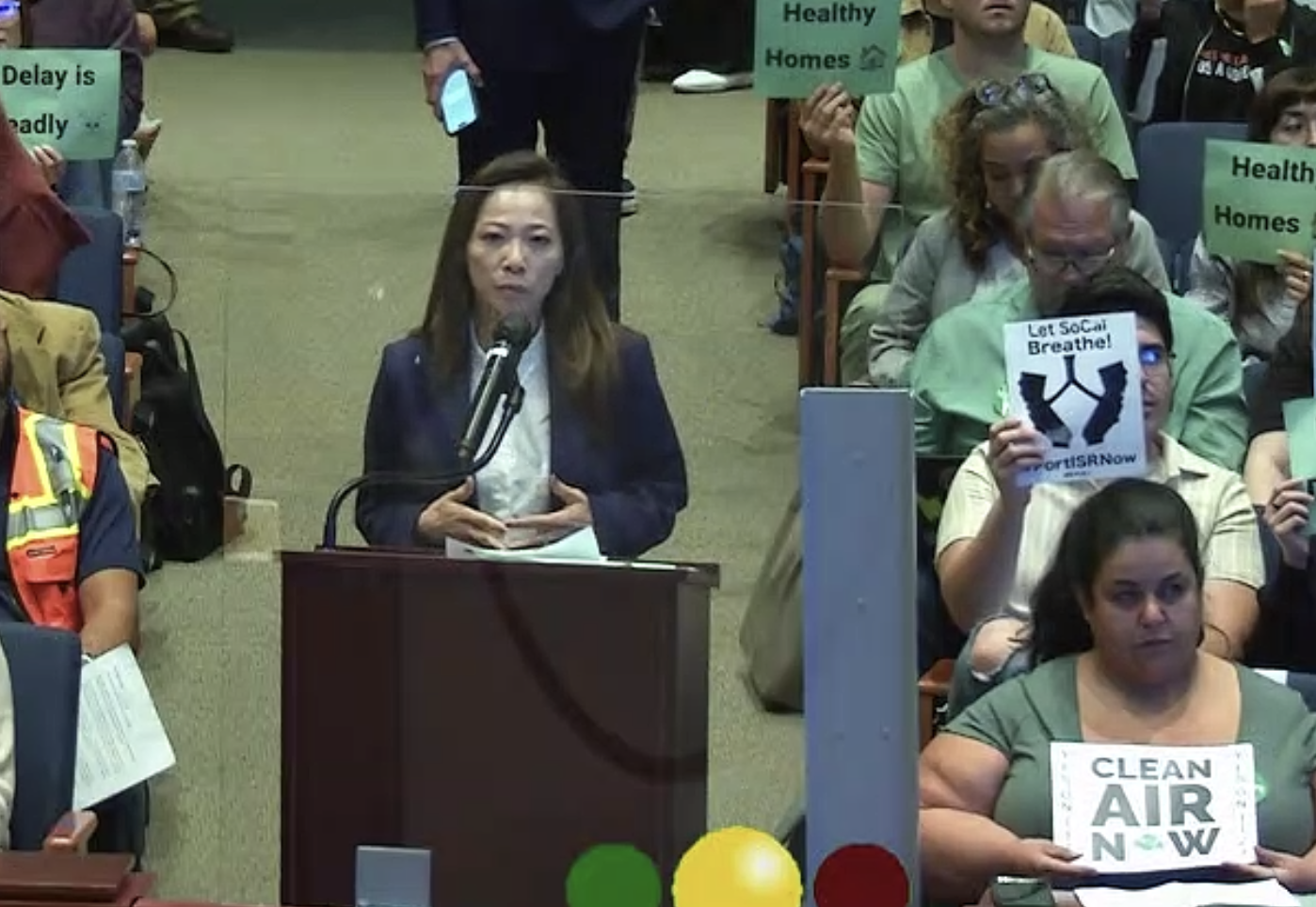
Board member Holly Mitchell took the other side, saying the rules were needed to improve air quality in the nation’s smoggiest air basin.
“If we don’t start now, when will we effect any change?” asked Mitchell, a Los Angeles County supervisor. “We have the worst air quality in the nation. That forces us to make hard decisions.”
Board member Patricia Lock Dawson, mayor of Riverside, reflected her colleagues’ mixed feelings.
“It is our job to improve air quality. We are specifically charged with reducing NOx,” Lock Dawson said. “But Californians are really struggling now. (And) poverty is a health issue, too.”
She added: “I wish this were more carrot than stick.”
Defeated rules aimed at phasing out appliances
To meet the targets, 30% of manufacturers’ sales would have needed to consist of zero-emission models starting in 2027. That would rise to 50% in 2029 and eventually 90% by 2036. The rules were projected to affect 10 million gas appliances.
Under the rules, manufacturers would be charged $100 for each gas furnace and $50 for every gas water heater they sell within the targets. For sales that exceed the cap, they would pay $500 and $250, respectively. Revenue from these fees would be used to help pay for zero-emission appliances, especially in disadvantaged communities, according to the air district.
The proposal was a “compromise,” Mitchell said, noting that staff had made numerous changes in the original proposed rule changes to answer cost concerns.
Among the thousands who had registered opinions with the air-quality district ahead of the vote was second-grade teacher Barbara Ishida. Her Altadena home was destroyed in the Eaton Fire.
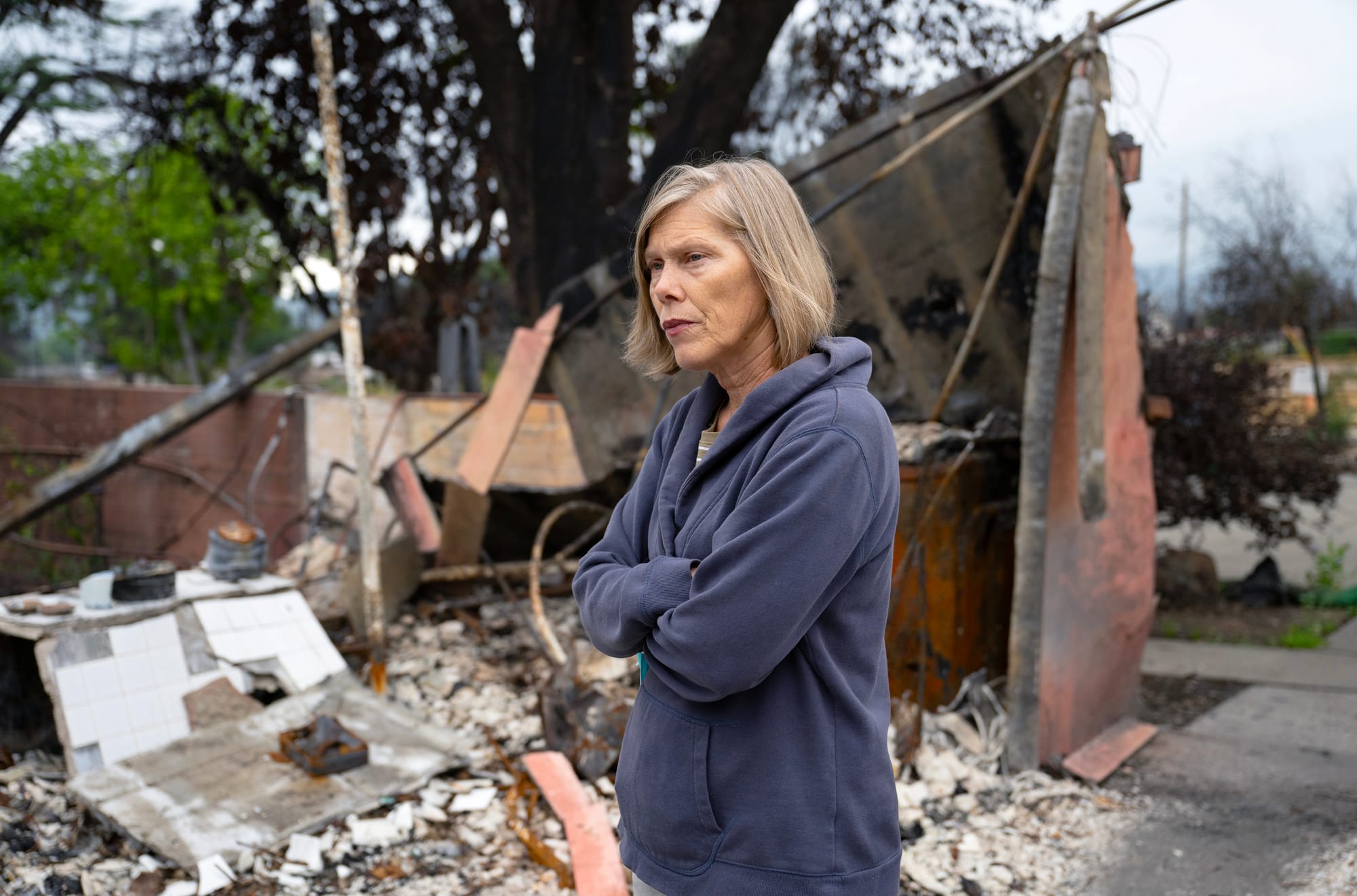
Ishida’s vision is to build a fire-resistant home with no gas appliances. That approach is backed by a University of California Berkeley study released in April that concluded all-electric construction is the fastest, most cost-effective and most climate-friendly strategy to rebuild after the fires.
Ishida had signed a letter supporting the proposed rules because she believed they would encourage Altadena to build back in a sustainable way. She criticized opponents for “thinking short term.”
“They're just putting profits over people,” Ishida said in an interview before the vote. “They're not thinking long term, And they're not thinking very well for the next generation.”
Floodlight freelance reporter Hilary Beaumont contributed to this story. Floodlight is a nonprofit newsroom that investigates the powerful interests stalling climate action.

